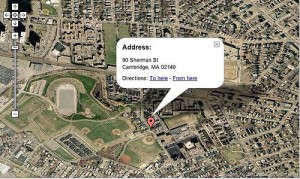An effective website is vital to the success of your business. But even when you’re working with a professional web designer, it’s hard to pinpoint what it takes to create a great site.
While you’re busy outlining general ideas of how you want your site to look and run, don’t forget to think about the smaller details, too. Whether you’re starting a new business or simply want to update your current online presence, here are several essential features necessary for a lucrative website:
Attention-Grabbing Headline
Grab and keep the attention of your site’s visitor with a strong headline. Headlines let people know whether or not they’ve come to the right page. An effective headline is generally fewer than ten words and offers a concise summary of what your business does or has to offer. A sub-headline can expand on that point with more details.
Your headline should be catchy and informative, but it also needs to stand out visually. When designing your site, make the headline the focal point on your homepage so that it’s the first thing potential customers notice.
Easy to Navigate
Visitors will be disinterested in your website if it’s difficult to navigate. Never underestimate the impatience of the average Internet user. If they can’t readily access the information they want on your site, they’ll simply move on.
To avoid losing potential customers, create a simple and clearly designed site that’s easy to navigate. Have clear headings with direct links that take visitors to the exact information they’re expecting to find. Don’t overwhelm them with too many navigation categories or confusing titles.
Call to Action
Give visitors direction on how to proceed after they’ve looked over your website with a call to action button. Whether it’s for an email sign up or a link to your online store, a call to action button lets customer know what step to take next with your business. The button should be easy for customers to see and follow. Include it on every webpage and your Facebook page when possible.
Social Media & Blogging Integration
An active social media presence is vital to your online campaign. Millions of people use social media not only to find products and services they need, but also to stay updated on their favorite brands or companies.

photo courtesy of Peter Ras/flickr
Whether you’re using Facebook, Twitter, or Pinterest to connect with customers, make sure you interlink them all with your website. This allows customers easy access to your entire online presence.
In addition to social media, blogging is another great way to engage with customers. When you publish current and useful content regularly, you’re more like to stay relevant on search engines. A consistently updated blog will increase your chances of having return visitors and a larger online following. Remember to link to your site’s blog page on your social media outlets and/or email newsletters.
Mobile Site
These days more people use mobile devices than they do computers. Your website should accommodate mobile users so that you don’t lose potential customers. You can work with a designer to either create an app or a mobile-responsive site. The mobile-friendly version of your website should display basic information and use optimal images that quickly upload and are easy to view.
Effective Content & Pages
Even with an eye-catching and easy to use layout, your site still needs valuable content to be successful. Having authentic and inventive web copy, that doesn’t come off like a cheesy sales pitch, is key to running a lucrative business website.
The tone of your web copy should strike a balance between sales advertising and helpful information. You should aim to prove the importance and effectiveness of your products/services with persuasive but honest language. You can achieve this by demonstrating examples of why there’s a need for your business and by citing positive testimonials from past clients. If applicable, describe your products with captivating details and images.

photo courtesy of Brian Sawyer/flickr
Allow customers to ask questions and give feedback through a useful contact page. Give them access to all your contact info, including your company’s number, email, and address so that they’re not frustrated in their attempt to reach you. You can also include a question or comment form so that customers can easily contact you directly from your site. If you own a shop or store, have an embedded map or direction plug-in like Google Maps on your contact page.
In addition to good web copy and a handy contact page, you’ll need an effective “About Us” or “Our Story” page. Customers want to know the purpose behind your business. Share your back story and mission statement on your website so that customers have the chance to connect to your brand on a personal level.
A well-designed and effective site is an important and necessary business tool. Incorporating these essential elements into your website will help you turn online visitors into loyal customers.

Thanks for the informative article! There are a lot of nice templates for site creating (for example good list http://www.webbuildersguide.com/website-builder-categories/website-builders-for-business/ ), every day appears a new one and sometimes it’s rather hard to define which one is better)